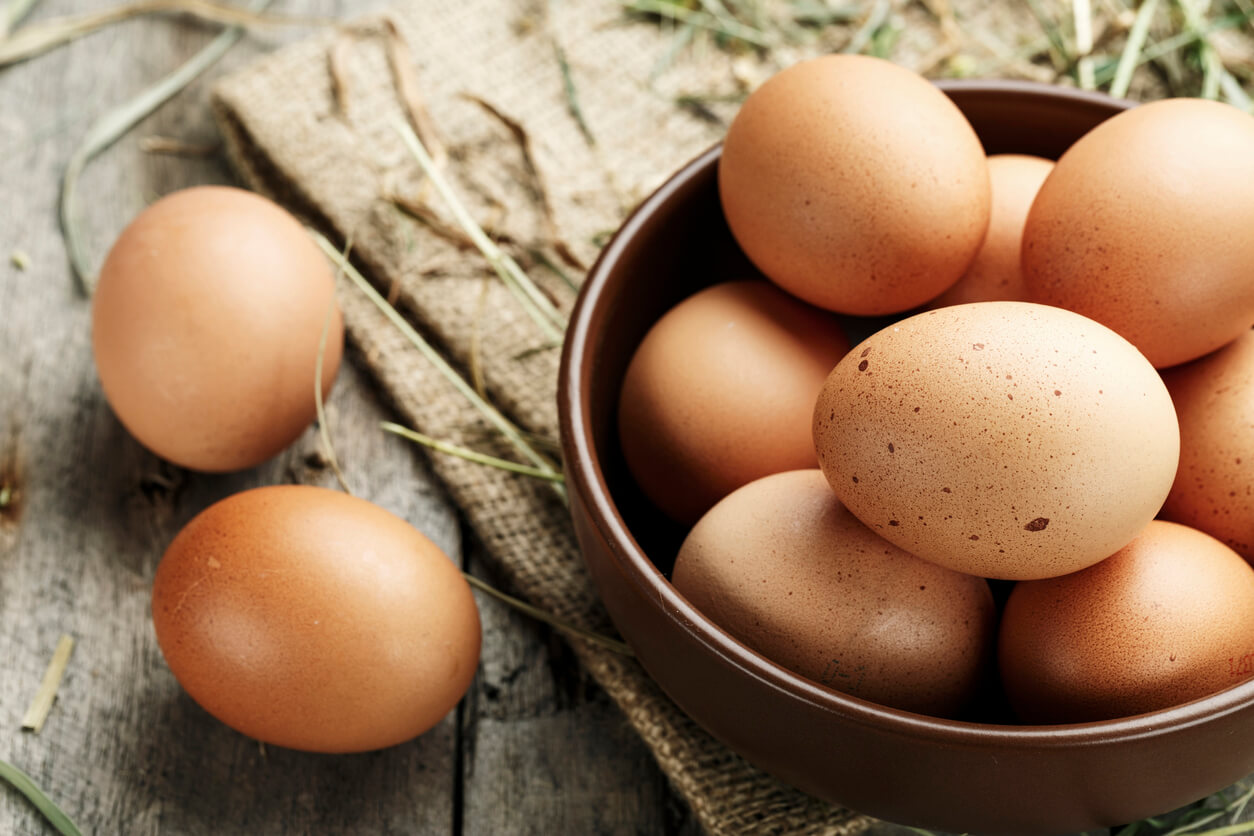Maintaining a healthy diet during pregnancy is one of the top pieces of advice expecting moms hear from their doctors. Everyone knows that eating healthy is a good thing, but what are the specific benefits for mom and baby? And is mom really eating for two?
We’ve got the answers. Here’s everything you need to know about the foods you should eat while pregnant:
The benefits of a healthy pregnancy diet
Knowing how diet affects you and your baby encourages you to make healthy food decisions. Good food makes you feel great, but here are some specific reasons to maintain a healthy pregnancy diet.
Healthy diet benefits for you include:
- Supporting a comfortable pregnancy: Proper nutrition minimizes uncomfortable side effects like constipation, fatigue and morning sickness.
- Decreasing odds of complications: A good diet can prevent preeclampsia, anemia, gestational diabetes and other issues.
- Improving delivery and recovery: Eating well increases your odds of a timely labor and delivery, as well as supporting faster postpartum recovery.
Healthy diet benefits for your baby include:
- Encouraging proper health: Getting the right nutrients from mom increases the chance that your baby will be born at a healthy weight and supports brain development.
- Decreasing risks of certain birth defects:Â Lacking specific nutrients while in the womb can affect your baby for life. For example, according to Everyday Health, a lack of vitamin B9 (also known as folate or folic acid) can lead to neural tube defects, which are developmental problems in the brain and spinal cord. Similarly, a lack of vitamins B2 and B3 increases the risk of your baby being born with congenital heart disease.

While you are technically eating for two (or more!), the baby growing inside your body isn’t a reason to eat anything and everything. It’s OK to eat more, but your diet should focus on getting the right amounts of nutrients rather than simply increasing calories.
Foods to eat while pregnant
On that note, you really don’t need to focus on gaining weight and increasing calories until later in your pregnancy. Per the Mayo Clinic, women at a normal weight should gain one to four pounds during their first few months, then about one pound per week (or an extra 300 calories per day) during the second and third trimesters. These recommendations will shift if you’re over- or underweight. Also, be sure to talk to your doctor before following these (or any) pregnancy dieting guidelines.
“The food you eat and the prenatal vitamins you take work together.”
On that note, be sure to take your prenatal vitamins as prescribed. While these nutrients are to support your baby’s development, they aren’t a substitute for healthy eating habits. The food you eat and the vitamins you take work together for optimum health.
As noted before, any food increases should be focused on adding more nutrients, not just calories. The ones you definitely want to focus on are:
- Fiber: Necessary for baby’s development and helpful for relieving constipation.
- Iron: Used to make hemoglobin, the part of the red blood cell that carries oxygen. Both you and your baby will need lots of hemoglobin during pregnancy.
- Calcium:Â Builds baby’s bones and teeth.
- Iodine: Supports baby’s brain and nervous system development.
- Vitamin C: Helps you absorb iron and builds collagen, a protein in your child’s muscles, bones, blood vessels and cartilage.
- Vitamin B9:Â Produces blood, supports enzyme function and prevents neural-tube and developmental defects.
- Vitamin A: Creates the cells that make up baby’s internal organs and supports healthy eyes, skin and bones.
- Complex carbohydrates: Provides both energy and fiber.
- Fat: Provides energy and helps metabolize vitamins A, D, E and K.
- Zinc: Aids fetal growth.
What foods support these nutritional goals? We’re glad you asked:
- Whole grains: These complex carbohydrates provide both fiber and energy. Choose brown rice, whole grain or sprouted bread, barley, oatmeal, millet and popcorn. Avoid simple carbs like white sugar and white bread, which are far less nutrient-rich.
- Leafy greens:Â Spinach, kale, lettuce and other dark green vegetables are some of the best foods for you. They’re jam-packed with vitamins like iron, folate, vitamin C and vitamin A.
- Eggs: Provides healthy fats and vitamin D.
- Lean meat and poultry: These are great sources of protein and iron.
- Legumes: Beans and lentils are high in both fiber and protein.
On that note, here are the foods you should avoid:
- Unpasteurized juice and dairy.
- Raw fish.
- Undercooked meat.
- Undercooked or partially cooked eggs.
Any of these could contain harmful bacteria such as Listeria, which is known to cause miscarriages.
In addition, limit your intake of the following:
- Coffee.
- Alcohol (Some doctors say an occasional glass of wine is fine, while others say to cut alcohol completely).
Finally, don’t let all this advice stress you out. In all likelihood, you won’t need a complete upheaval of your diet to have a healthy pregnancy. Just keep these tips in mind, consult with your doctor and maybe learn a few new recipes, and you’ll be right on track.
